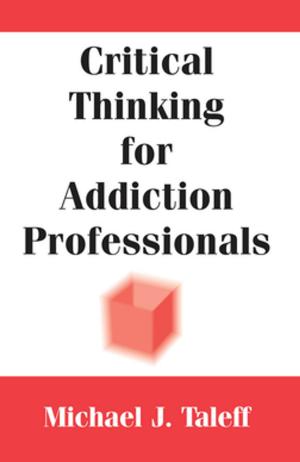Fatigue in Multiple Sclerosis
A Guide to Diagnosis and Management
Nonfiction, Health & Well Being, Medical, Ailments & Diseases, Diseases| Author: | Dr. Lauren B. Krupp, MD | ISBN: | 9781934559482 |
| Publisher: | Springer Publishing Company | Publication: | March 1, 2004 |
| Imprint: | Demos Medical | Language: | English |
| Author: | Dr. Lauren B. Krupp, MD |
| ISBN: | 9781934559482 |
| Publisher: | Springer Publishing Company |
| Publication: | March 1, 2004 |
| Imprint: | Demos Medical |
| Language: | English |
This practical guide for physicians and other health care professionals discusses the impact of fatigue on the individual with MS, the potential etiologies underlying MS-related fatigue, its work up and diagnosis, and pharmacologic and nonpharmacologic management strategies.
Fatigue is perhaps the single most prevalent and disabling symptom of the multiple sclerosis, and limits patients' activity more than any other MS symptom. The identification of fatigue as a distinct clinical entity requires both art and science, and most of all, a willingness and ability to listen carefully to patients and their families. The physician's ability to obtain a comprehensive history requires a full understanding of the circumstances in which fatigue occurs (physical, cognitive, and psychosocial) and demands consideration of a large number of disorders, including anxiety, depression, excessive daytime sleepiness, pain, and spasticity, all of which may mimic or contribute to fatigue.
While fatigue is almost exclusively a subjective experience, depending on the patient's ability to understand and report this symptom, there are effective methods for identifying the existence of fatigue, determining its severity, and distinguishing it from related or contributing disorders such as depression, pain, and sleep disorders.
Readers will learn that fatigue need not be tolerated by the MS patient. Various therapies, support systems, and treatment of underlying affective disorders can all alleviate fatigue or reduce its impact, restoring the patient's energy levels and ability to participate in life. Virtually every MS patient with fatigue can benefit from intervention, and failing to treat the symptom of fatigue with the respect that it deserves is a serious detriment to patient care.
This practical guide for physicians and other health care professionals discusses the impact of fatigue on the individual with MS, the potential etiologies underlying MS-related fatigue, its work up and diagnosis, and pharmacologic and nonpharmacologic management strategies.
Fatigue is perhaps the single most prevalent and disabling symptom of the multiple sclerosis, and limits patients' activity more than any other MS symptom. The identification of fatigue as a distinct clinical entity requires both art and science, and most of all, a willingness and ability to listen carefully to patients and their families. The physician's ability to obtain a comprehensive history requires a full understanding of the circumstances in which fatigue occurs (physical, cognitive, and psychosocial) and demands consideration of a large number of disorders, including anxiety, depression, excessive daytime sleepiness, pain, and spasticity, all of which may mimic or contribute to fatigue.
While fatigue is almost exclusively a subjective experience, depending on the patient's ability to understand and report this symptom, there are effective methods for identifying the existence of fatigue, determining its severity, and distinguishing it from related or contributing disorders such as depression, pain, and sleep disorders.
Readers will learn that fatigue need not be tolerated by the MS patient. Various therapies, support systems, and treatment of underlying affective disorders can all alleviate fatigue or reduce its impact, restoring the patient's energy levels and ability to participate in life. Virtually every MS patient with fatigue can benefit from intervention, and failing to treat the symptom of fatigue with the respect that it deserves is a serious detriment to patient care.















